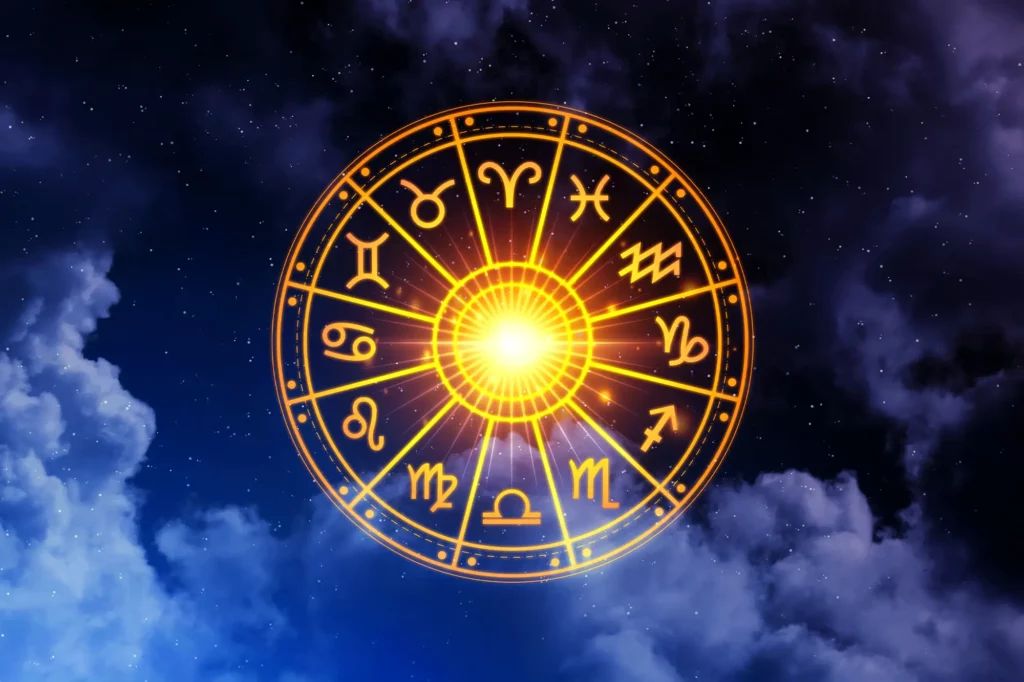It often starts casually. Someone at a party asks for your zodiac sign. You answer, maybe proudly, maybe with a shrug — and before you know it, someone is talking about your Moon in Pisces or your Rising in Capricorn. You nod along, but deep inside you’re wondering… What does that actually mean?
Astrology seems to be everywhere. In conversations with friends, in TikTok trends, even in overheard coffee shop chats. And if you’re new to it, you probably have a dozen questions swirling in your mind.
Let’s break down the 10 most common ones, with a mix of clarity, curiosity, and a touch of stardust.
1. Is Astrology Even Real?
Astrology isn’t a science in the laboratory sense. You won’t find peer-reviewed studies proving its predictions. But it has been part of human culture for thousands of years, from Babylonian sky-watchers to Renaissance scholars.
Think of astrology as a symbolic language. It reflects patterns, personality traits, and cycles, not fixed fates. The value lies in the insight and perspective it offers, not in absolute certainty.
2. Sun, Moon, Rising: Your Astrological Big Three
Sun sign: Your core self, the part of you that drives your main personality and values.
Moon sign: Your emotional nature, instincts, and inner world.
Rising sign (Ascendant): The way others first perceive you, your initial approach to life.
Together, these three paint a richer portrait than your Sun sign alone, explaining why two people with the same zodiac sign can feel completely different.
3. Can Astrology Predict the Future?
Astrology works more like a weather forecast than a prophecy. It tracks cycles and planetary movements to highlight energies and opportunities.
You can’t stop the rain, but knowing it’s coming helps you prepare and that’s where astrology shines.
4. Mercury Retrograde: The Cosmic Curveball
Three to four times a year, Mercury appears to move backward from our perspective on Earth. This is an optical illusion, but in astrology, Mercury rules communication, travel, and technology, so this period is symbolically linked to delays, misunderstandings, or tech hiccups.
It’s not about fear. It’s about adjusting the pace: double-check details, avoid rushing big contracts, and be ready to laugh off the occasional glitch.
5. Birth Charts: Your Personal Cosmic Map
Your birth chart is a snapshot of the sky the moment you were born. It reveals more than just your Sun sign, it maps your planets, houses, and aspects, offering insight into your strengths, challenges, and life themes.
It’s like your personal cosmic fingerprint. No one else has the same one.
6. The Four Elements and Their Influence
Fire (Aries, Leo, Sagittarius) – Passionate, bold, action-oriented
Earth (Taurus, Virgo, Capricorn) – Practical, grounded, reliable
Air (Gemini, Libra, Aquarius) – Intellectual, curious, communicative
Water (Cancer, Scorpio, Pisces) – Emotional, intuitive, empathetic
Your dominant element shapes how you approach relationships, challenges, and creativity.
7. Saturn Return: The Universe’s Reality Check
Saturn takes about 29 years to orbit the Sun, so your Saturn Return happens roughly at ages 27-30, 57-60, and 87-90. For some, it arrives a bit earlier or later.
Astrologically, it’s a milestone, a time to reassess your path, take responsibility, and build structures for the next chapter of your life. It can be challenging, but it’s also deeply empowering.
8. Astrology and Love Compatibility
Sun sign compatibility can be fun to read about, but it’s just the beginning. Astrologers look at the Moon (emotions), Venus (love), Mars (desire), and especially the aspects between your charts to see how two people connect.
Even signs considered “incompatible” can thrive if they understand each other’s needs and respect their differences.
9. North Node and South Node: Your Soul’s Roadmap
The North Node points to where you’re meant to grow, the challenges that lead to fulfillment.
The South Node reflects familiar skills and tendencies. In some astrological traditions, it’s linked to past lives; in others, it’s simply your personal comfort zone.
Growth happens when you step toward your North Node’s energy while integrating your South Node’s strengths.
10. How to Begin Your Astrology Journey
Start here:
Discover your Big Three (Sun, Moon, Rising)
Pull your full birth chart using a trusted tool (astro.com, for example)
Learn the meaning of each planet
Explore the twelve houses and their life areas
Observe current planetary transits and how they match your experiences
Astrology is a lifelong exploration. You don’t need to learn everything at once, follow your curiosity.
Final Thoughts
Astrology isn’t about sealing your fate. It’s about giving you a framework to understand your patterns, your choices, and your growth. Whether you treat it as a spiritual compass, a reflection tool, or just a bit of fun, it can help you navigate life with more self-awareness and wonder.
The stars don’t tell you who to be, they help you see more clearly who you already are
The post Astrology Explained: 10 Common Questions Finally Answered appeared first on askAstrology.


